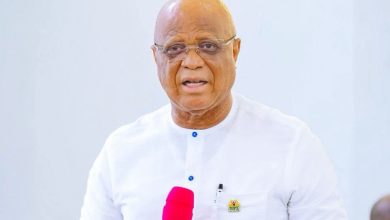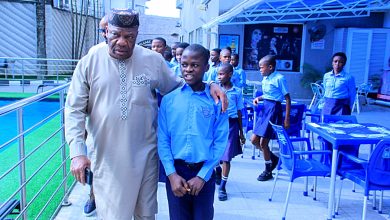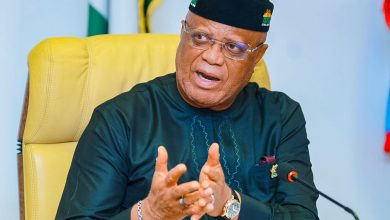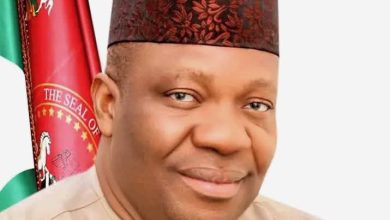Top NewsUncategorized
African Council For Communication Education Converges, Deliberates On Digital Media, Civic Engagement
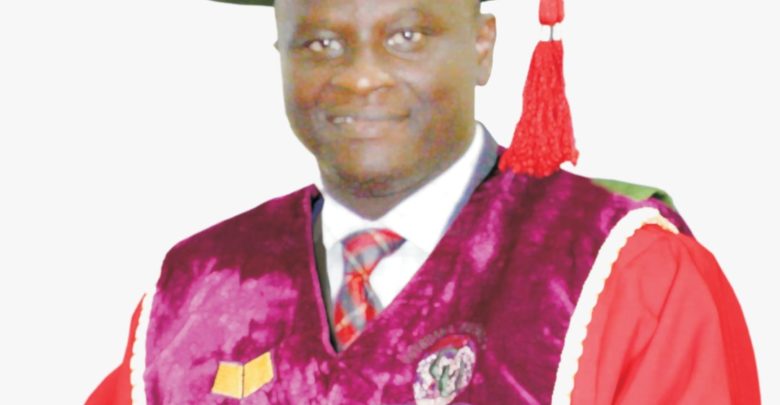
-
African Council For Communication Education Converges, Deliberates On Digital Media, Civic EngagementBy Kenneth JudeThe 21st edition of the Annual International Conference of the African Council for Communication Education (ACCE) with the theme “Digital Media, Civic Engagement and Global Platforms” has opened in Abuja, the federal capital territory.The conference, holding at the National Open University, Abuja began yesterday (Tuesday) and will be rounded off on Friday October 22nd, 2019.The ACCE draws membership and participation from university lecturers’ media educators, professionals and other key players from all walks of life from various countries in Africa and beyond.Speaking in an exclusive interview with Crystal Express, the President of the Council, Prof. Nnamdi Tobechukwu Ekeanyanwu, explained that the conference which holds annually focuses on how communication could be used to address pressing issues globally.Prof Ekeanyanwu, a renowned scholar, said this year’s conference will, among other things, focus on the role “digital media could play in engaging the people and civic education by making them politically alive.”The ACCE President, who is a lecturer in the Department of Communication Arts, University of Uyo, noted that the conference will also look at how digital media can improve civic participation, especially in politics and other kinds of grassroots mobilization and taking note of what is happening globally.He said the keynote speaker of the conference will be Prof. Bruce Mutsvairo of the University of Auburn in Atlanta, United States of America, adding that the conference will play host to leading communication scholars, media educators, renowned professionals and other key players from various endeavours.Ekeanyanwu, a Professor of Strategic and International Communication, noted that the basic problem bedeviling Nigeria and other African countries is basically leadership, saying that the conference, through the theme, will also pay attention to how members of the society can become more politically aware so that they can make informed choices and decisions.“If you come to this part of the world, Nigeria for example, you find out that the major problem we have is leadership; and leaders are taken from the followers. So, if we begin to have people we elect and we’re better informed to make a better political decision, definitely, political participation will improve and leaders will know that they are responsible to the people and things will begin to change.”He revealed that the conference will also feature small group discussions where different aspects of the theme shall be dissected and analysed by participants, adding that “by Thursday, we’ll have our annual AGM where we will look at other issues that pertain to that conference from which we’ll now issue a communiqué on how digital media, in essence communication, would be used to improve civic participation so that people are better informed and enlightened to participate in election.”He said that the importance of digital media cannot be overemphasized, noting that the awareness about digitization has grown to the point that even the woman in the village now uses a smart phone.He maintained that civic engagement is not all about voting, but about participation, adding that “digital media is a point we think can help us. Even the woman in the village is carrying a smart phone; what else can he or she do with that smart phone apart from receiving call, that is what that conference will be all about and by Friday we’re done,” he stated.Prof Ekeanyanwu disclosed that the conference will be used to make people be more aware of their rights as citizens, how they can participate better in elections and ask the right questions from their leaders. “We want to use this conference to move people from a level of ignorance to knowledge about elections, their rights, their expectations and what they need to do. This country is ours hence we need to get to a level where people are able to ask the right kind of questions; say no to what they need to say no to and yes to what they need to say yes to, so that one person does not wake up and think that he’s all and all.You can see what is happening in Hong Kong. For many months, people have insisted on what they want and the government is being forced to listen.”Ekeanyanwu, who also spoke on the state of the print media and media organisations and their quest for staying afloat given the current realities, noted that the conference will have a session where issues concerning the print media and its survival will be discussed, adding that the issue is a serious matter.“I’ve done a study on Economics of Decline in the media industry. It didn’t start in Nigeria, but those guys overseas have a way of surviving it and they are still surviving. In that study, I made efforts to find out the circulation strength of most newspapers in Nigeria, but it’s a state secret. People falsify figures just to pretend that things are working well.”He also decried the influx of quacks into journalism, noting that bodies like the Nigeria Union of Journalists (NUJ), Nigerian Press Council (NPC) and Nigerian Guild of Editors (NGE) must come together and fashion out a template that will ensure that prospective journalists are made to go through a specialised training that qualifies them to practice the profession.“If we want it to be called a profession, the NUJ, Nigeria Guild of Editors, and the Nigerian Press Council are capable enough to sit down and say that 1, 2 or 3 items must be presented by everybody before you’re called a journalist.”Responding to a question on the numerous conferences and talk shops in the country which most times yield little or no results, Prof. Ekeanyanwu said though he gets frustrated by that, he insisted that such conferences and talk shops will continue to hold for the benefit of students and others so that in no distant time, such materials can become effective tools in creating a new Nigeria desired by all.“At least if we cannot change those that are no longer changeable, the ones who are behind us that are students, we make sure that these things are in black and white so people do not make mistakes because they didn’t know what is right; let it be that they refused to take the right path not that they never knew that there was a right path; that’s what we stand to do. We’ll keep talking and praying that one day, somebody rises up, picks those information and that becomes the new Nigeria we expect to emerge,” he maintained.

